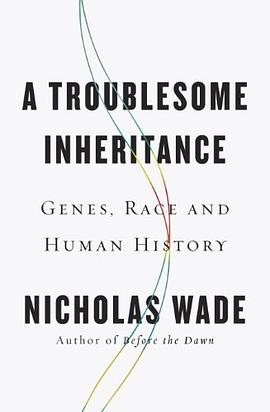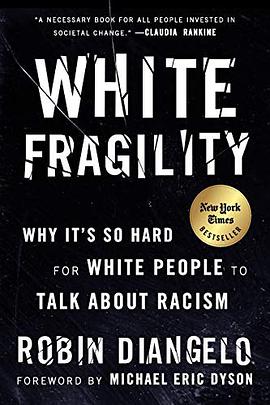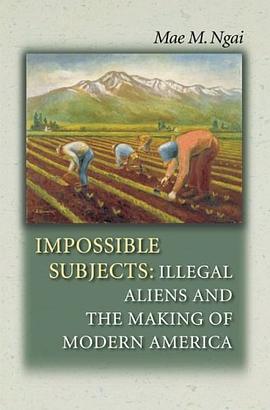

具体描述
Drawing on startling new evidence from the mapping of the genome, an explosive new account of the genetic basis of race and its role in the human story
Fewer ideas have been more toxic or harmful than the idea of the biological reality of race, and with it the idea that humans of different races are biologically different from one another. For this understandable reason, the idea has been banished from polite academic conversation. Arguing that race is more than just a social construct can get a scholar run out of town, or at least off campus, on a rail. Human evolution, the consensus view insists, ended in prehistory.
Inconveniently, as Nicholas Wade argues in A Troublesome Inheritance, the consensus view cannot be right. And in fact, we know that populations have changed in the past few thousand years—to be lactose tolerant, for example, and to survive at high altitudes. Race is not a bright-line distinction; by definition it means that the more human populations are kept apart, the more they evolve their own distinct traits under the selective pressure known as Darwinian evolution. For many thousands of years, most human populations stayed where they were and grew distinct, not just in outward appearance but in deeper senses as well.
Wade, the longtime journalist covering genetic advances for The New York Times, draws widely on the work of scientists who have made crucial breakthroughs in establishing the reality of recent human evolution. The most provocative claims in this book involve the genetic basis of human social habits. What we might call middle-class social traits—thrift, docility, nonviolence—have been slowly but surely inculcated genetically within agrarian societies, Wade argues. These “values” obviously had a strong cultural component, but Wade points to evidence that agrarian societies evolved away from hunter-gatherer societies in some crucial respects. Also controversial are his findings regarding the genetic basis of traits we associate with intelligence, such as literacy and numeracy, in certain ethnic populations, including the Chinese and Ashkenazi Jews.
Wade believes deeply in the fundamental equality of all human peoples. He also believes that science is best served by pursuing the truth without fear, and if his mission to arrive at a coherent summa of what the new genetic science does and does not tell us about race and human history leads straight into a minefield, then so be it. This will not be the last word on the subject, but it will begin a powerful and overdue conversation.
作者简介
Nicholas Wade received a BA in natural sciences from King’s College, Cambridge. He was the deputy editor of Nature magazine in London and then became that journal’s Washington correspondent. He joined Science magazine in Washington as a reporter and later moved to The New York Times, where he has been an editorial writer, concentrating on issues of defense, space, science, medicine, technology, genetics, molecular biology, the environment, and public policy, a science reporter, and a science editor.
目录信息
读后感
亚马逊买的纸版书,2016.10.15-10.23,读完,整体来讲不错。 书结构:共十章 第二章:种族主义的概念,以及影响其诞生的因素(科学的“诱导”作用) 第三章:人类社会行为的起源 第四章+第五章:基于真凭实据的种族遗传学 第六章-第十章:猜想:人类进化,历史,经济等互相交...
评分序: 尼古拉斯•韦德(NicholasWade) 英国剑桥大学国王学院自然科学学士。现在是自由撰稿人、记者,写了三部关于人类进化的著作:《黎明之前》—用基因技术颠覆史前五万年人类进化史;《信仰本能》—分析宗教行为进化历史;《麻烦的继承者》——探讨种族和遗传之间的关系。 ...
评分撰文:H. Allen Orr 翻译:陶小路 首发《东方历史评论》微信公号:ohistory [人类社会的差异是由基因决定的吗?] 1 科学与科学新闻是两回事。二者各有价值,可做好科学与做好科学新闻所需要的技能却有不同。做科学需要对所谓的事实以及理论一直保持怀疑,做科学新闻则需要将复...
评分人类仍在不断进化。人类的祖先来自欧洲,经过了上万年的进化,产生了现在多样的国家和社会。20代可以把狐狸训练成为宠物,20代人以上同样可以让一群人发生很大的倾向变化,这种变化到底是文化还是基因?本书持基因的观点。一个基因的变化,可以让西藏人更加适应高原气候...
评分撰文:H. Allen Orr 翻译:陶小路 首发《东方历史评论》微信公号:ohistory [人类社会的差异是由基因决定的吗?] 1 科学与科学新闻是两回事。二者各有价值,可做好科学与做好科学新闻所需要的技能却有不同。做科学需要对所谓的事实以及理论一直保持怀疑,做科学新闻则需要将复...
用户评价
一半。态度还好,真章工作脑洞略大
评分把人类行为或者社会行为看成是文化影响下的基因内源的表现从科学上来看也是站不住脚的
评分其实我是赞同作者观点的,不过目前证据还是薄弱了些
评分把人类行为或者社会行为看成是文化影响下的基因内源的表现从科学上来看也是站不住脚的
评分校园文化大革命,周围的小将都去造反有理谴责“种族主义”的下午,我看完了这本讲民族的行为和成就很大程度上是基因决定的书。
相关图书
本站所有内容均为互联网搜索引擎提供的公开搜索信息,本站不存储任何数据与内容,任何内容与数据均与本站无关,如有需要请联系相关搜索引擎包括但不限于百度,google,bing,sogou 等
© 2025 book.quotespace.org All Rights Reserved. 小美书屋 版权所有




















